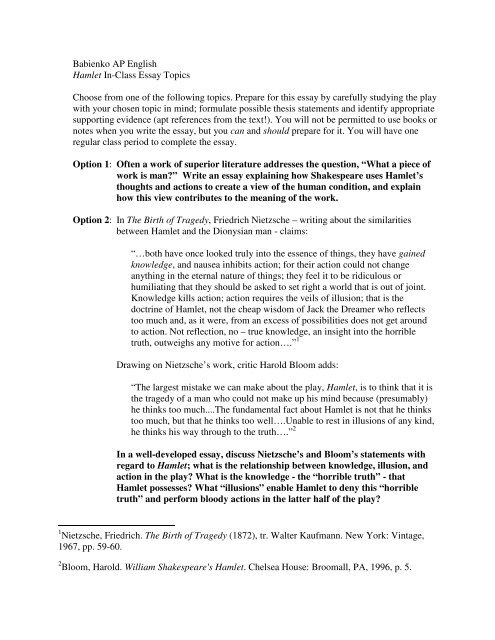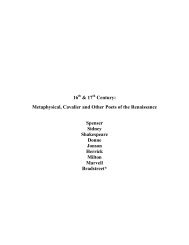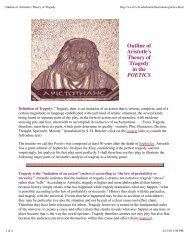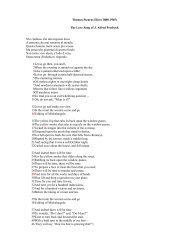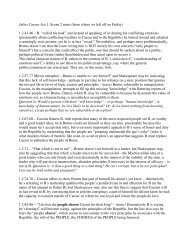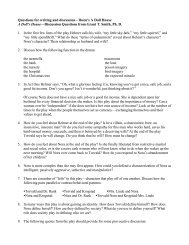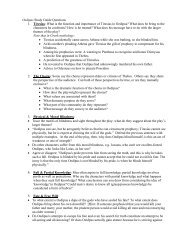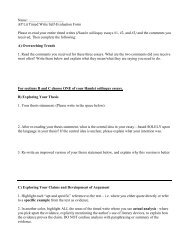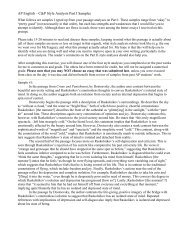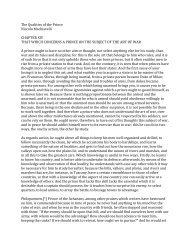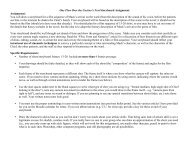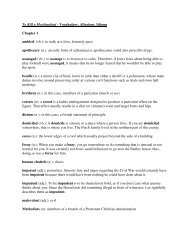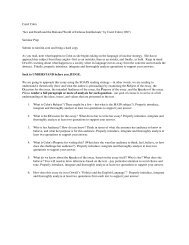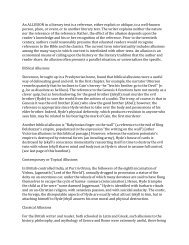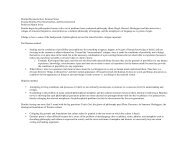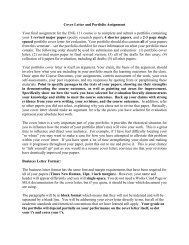Babienko AP English Hamlet In-Class Essay Topics Choose from ...
Babienko AP English Hamlet In-Class Essay Topics Choose from ...
Babienko AP English Hamlet In-Class Essay Topics Choose from ...
Create successful ePaper yourself
Turn your PDF publications into a flip-book with our unique Google optimized e-Paper software.
<strong>Babienko</strong> <strong>AP</strong> <strong>English</strong><br />
<strong>Hamlet</strong> <strong>In</strong>-<strong>Class</strong> <strong>Essay</strong> <strong>Topics</strong><br />
<strong>Choose</strong> <strong>from</strong> one of the following topics. Prepare for this essay by carefully studying the play<br />
with your chosen topic in mind; formulate possible thesis statements and identify appropriate<br />
supporting evidence (apt references <strong>from</strong> the text!). You will not be permitted to use books or<br />
notes when you write the essay, but you can and should prepare for it. You will have one<br />
regular class period to complete the essay.<br />
Option 1: Often a work of superior literature addresses the question, “What a piece of<br />
work is man?” Write an essay explaining how Shakespeare uses <strong>Hamlet</strong>’s<br />
thoughts and actions to create a view of the human condition, and explain<br />
how this view contributes to the meaning of the work.<br />
Option 2: <strong>In</strong> The Birth of Tragedy, Friedrich Nietzsche – writing about the similarities<br />
between <strong>Hamlet</strong> and the Dionysian man - claims:<br />
“…both have once looked truly into the essence of things, they have gained<br />
knowledge, and nausea inhibits action; for their action could not change<br />
anything in the eternal nature of things; they feel it to be ridiculous or<br />
humiliating that they should be asked to set right a world that is out of joint.<br />
Knowledge kills action; action requires the veils of illusion; that is the<br />
doctrine of <strong>Hamlet</strong>, not the cheap wisdom of Jack the Dreamer who reflects<br />
too much and, as it were, <strong>from</strong> an excess of possibilities does not get around<br />
to action. Not reflection, no – true knowledge, an insight into the horrible<br />
truth, outweighs any motive for action….” 1<br />
Drawing on Nietzsche’s work, critic Harold Bloom adds:<br />
“The largest mistake we can make about the play, <strong>Hamlet</strong>, is to think that it is<br />
the tragedy of a man who could not make up his mind because (presumably)<br />
he thinks too much....The fundamental fact about <strong>Hamlet</strong> is not that he thinks<br />
too much, but that he thinks too well….Unable to rest in illusions of any kind,<br />
he thinks his way through to the truth….” 2<br />
<strong>In</strong> a well-developed essay, discuss Nietzsche’s and Bloom’s statements with<br />
regard to <strong>Hamlet</strong>; what is the relationship between knowledge, illusion, and<br />
action in the play? What is the knowledge - the “horrible truth” - that<br />
<strong>Hamlet</strong> possesses? What “illusions” enable <strong>Hamlet</strong> to deny this “horrible<br />
truth” and perform bloody actions in the latter half of the play?<br />
1 Nietzsche, Friedrich. The Birth of Tragedy (1872), tr. Walter Kaufmann. New York: Vintage,<br />
1967, pp. 59-60.<br />
2 Bloom, Harold. William Shakespeare's <strong>Hamlet</strong>. Chelsea House: Broomall, PA, 1996, p. 5.


